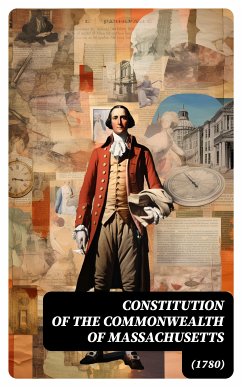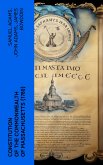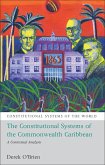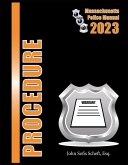The Constitution of the Commonwealth of Massachusetts, framed in 1780, stands as a paramount anthology in the canon of American legal and political literature. Within its pages lies a confluence of vigorous debates, revolutionary ideas, and the pivotal frameworks that have shaped the governance of Massachusetts. This collection is distinguished by its diversity in thought and literary expression, reflecting the rich intellectual landscape of the era. The anthology is noted for not only introducing foundational legal principles but also for elucidating the philosophical underpinnings of governance and societal structuring during a critical juncture in American history. The architects of this anthology, Samuel Adams, John Adams, and James Bowdoin, bring together a formidable array of perspectives grounded in their individual experiences and broader participation in the shaping of American democracy. Their contributions epitomize the intersection of Enlightenment ideals with practical governance, capturing the zeitgeist of their time. This collection is emblematic of early American political thought, deeply embedded in the ethos of liberty, justice, and the pursuit of a more perfect union. For scholars, students, and enthusiasts of American history and political science, this anthology offers an unparalleled expedition into the foundational texts that have informed state governance and the broader democratic principles at play. Delving into this collection promises not only a scholarly exploration of early American constitutional thought but also an insightful journey into the collective vision that propelled a fledgling nation toward its democratic ideals. This anthology serves as both an educational tool and a source of inspiration, inviting readers to engage with the complex dialogue between these seminal figures and their lasting legacy.
Dieser Download kann aus rechtlichen Gründen nur mit Rechnungsadresse in A, B, BG, CY, CZ, D, DK, EW, E, FIN, F, GR, H, IRL, I, LT, L, LR, M, NL, PL, P, R, S, SLO, SK ausgeliefert werden.









